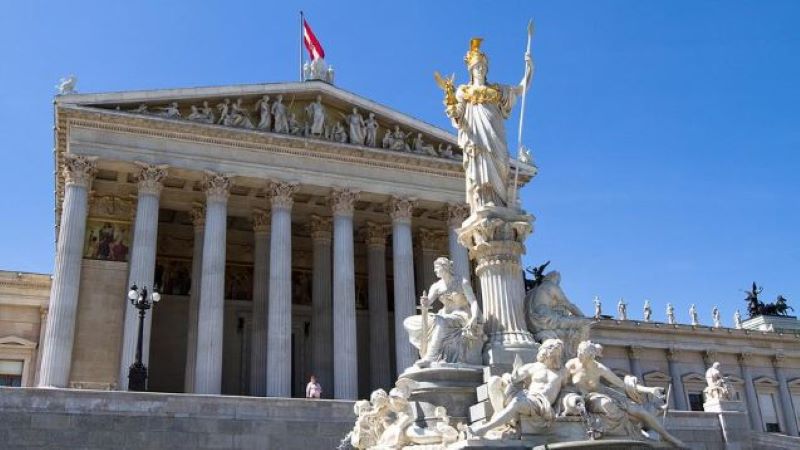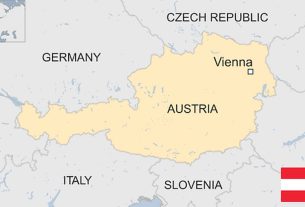Vienna: Speculation and discreet meetings continue as Austria inches closer to forming a new coalition government. While neither the ÖVP nor the SPÖ have openly addressed the prospect of a three-party coalition with the NEOS, the political maneuvering behind the scenes is undeniable. The ball, many insiders say, is now in the hands of President Alexander Van der Bellen and FPÖ leader Herbert Kickl. Meanwhile, frustration grows around Chancellor Karl Nehammer, especially after the SPÖ framed a recent “get-to-know-you” meeting between Nehammer and SPÖ leader Andreas Babler as a “secret summit.”
Planning for ‘Day X’ Powerful factions within both the ÖVP and SPÖ are quietly preparing for what they call “Day X”—the moment it becomes clear that Kickl will be unable to form a coalition. Influential players from social partners, key state parties, and the business community are already considering a possible black-red-pink (ÖVP-SPÖ-NEOS) alliance, with names for cabinet positions already being floated.
Nehammer as Chancellor, Babler or Bures as Vice? Karl Nehammer would almost certainly retain his position as Chancellor in this potential coalition. As for the Vice-Chancellorship, Andreas Babler seems like the logical choice. However, some within the SPÖ fear he may be a “dealbreaker” for the ÖVP. If Babler steps back, he could focus on parliamentary leadership and party reform, paving the way for Doris Bures to step in as Vice Chancellor. Though Bures is hesitant about joining the government, a joint SPÖ-ÖVP endorsement for the next presidential race may persuade her.
Independent Finance Minister, Hanke as Economic Czar? The Finance Ministry, facing a colossal budget overhaul, may go to an independent expert. Names like Christoph Badelt, president of the Fiscal Council, and WIFO head Gabriel Felbermayr have emerged, with WU professor Ewald Aschauer also in the mix. Both the SPÖ and NEOS would likely back these candidates. Peter Hanke, Vienna’s finance and economy city councilor, is also a top contender to lead an infrastructure and economic revival ministry, a key pillar of the SPÖ’s platform.
Labor, Social Affairs, and the Green Agenda Labor and Social Affairs could be handed to a union leader, with FSG’s Josef Muchitsch and GPA’s Barbara Teiber as top candidates. Babler may also take charge of the Social and Health Ministry if he stays out of parliament. SPÖ leader Philip Kucher is another contender for the health portfolio. On the environment front, Julia Herr is likely to helm the ministry, while SPÖ women’s leader Eva-Maria Holzleitner is seen as a strong candidate for Women’s Affairs.
ÖVP Retains Core Ministries The ÖVP is expected to keep much of its current team intact. Gerhard Karner is favored to remain Interior Minister, credited for reducing asylum numbers. The Justice Ministry, however, may prove contentious. Karoline Edtstadler’s name is circulating, but her strained relationship with Nehammer and the likelihood of resistance from the SPÖ and NEOS could lead to an independent pick, such as Financial Procurator Wolfgang Peschorn.
Foreign Affairs and NEOS’ Ambitions While Alexander Schallenberg remains the frontrunner for the Foreign Ministry, the NEOS have set their sights on the role, or more likely, the European Affairs portfolio. Possible candidates include Helmut Brandstätter and Claudia Gamon.
Surprises in Media and Digitalization The Media and Digitalization Ministry could see a shake-up. If the ÖVP takes the lead, Claudia Plakolm—seen as a rising star—might step into the role. However, the SPÖ is eyeing this portfolio for former ORF director-general Alexander Wrabetz. Should Wrabetz get the nod, Plakolm may instead serve as Minister for the Chancellor’s Office, working closely with Nehammer to coordinate the government’s agenda.
As the political chess game continues, Austria waits to see which pieces will fall into place in this high-stakes coalition drama.





